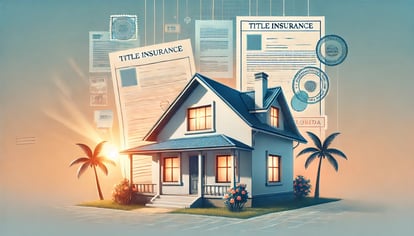Home Loans for Nurses: What You Need to Know Before the Process Begins
Moreover, the nursing profession offers tremendous flexibility that appeals to most people who choose to venture into this career path.
Despite these benefits, the nursing profession certainly has its fair share of downsides, particularly when it comes to mortgages. In general, mortgage lenders prefer applicants who fit neatly inside the 8-5 work cycle with steady and consistent pay each month and few employment gaps.
In this line of work, employment gaps are the norm rather than the exception and most working hours are essential "overtime." This is not the case when you're a staff nurse and even more so as a traveling one.
Due to these reasons, securing a mortgage as a nurse can be a very daunting process. But that doesn't automatically mean it's impossible.
Regardless of your financial situation and working arrangement, you can still qualify for and be approved for a mortgage loan if you weigh your options and choose appropriately.
Keep reading to learn everything you need to know when seeking a home loan as a nurse.
Can I Get A Mortgage Loan As A Staff Nurse?
As previously highlighted, the nursing profession has a unique set of circumstances that can make securing a mortgage more challenging compared to other professions. It is still possible to get a home loan provided you can produce proof of employment and income when applying for the mortgage.
Here are some of the factors that you need to be aware of when applying for a mortgage as a staff nurse:
Income
One of the things that mortgage lenders typically look at when qualifying a mortgage application for a loan is their income, and staff nurses are no exception.
The only difference is that nurses have various types of income that they have to account for in their mortgage applications. These are:
Base Pay
As a registered nurse (RN), you can use your base pay as qualifying income when applying for a mortgage as you start working, even if you have only recently graduated. Mortgage lenders will require you to have been in active employment for up to two years to qualify for a mortgage using your base pay.
With that being said, lenders can also consider the time you spent in nursing school as part of your employment history. Since RN schooling is longer than two years, your lender will consider you as having fulfilled the minimum two-year work history requirement by the time you start your first day in your nursing career.
Consequently, when applying for a mortgage loan, your lender might require you to provide your employer's offer letter stipulating your base salary and the number of hours you're expected to work.
Shift Differentials, Overtime, and Other "Extra Pay"
If you find that your base pay is not enough to afford you the amount of house you're looking to buy, worry not. You can still use your shift differentials, overtime, and other extra wages to qualify for a mortgage in addition to your base pay.
Mortgage lenders usually treat shift differentials as variable income and consider it part of your total income when qualifying you for a mortgage. They will want to see your shift differential earnings history (of between 12 to 24 months) when you apply for a home loan.
So, suppose you've been working some night shifts on some days every month for two years with a shift differential wage of $10 and have also worked overtime on some days; here is a breakdown of how your mortgage lender might calculate your income.
-
Current Base Pay - $30 per hour with 36 guaranteed hours per week - 30 x 36 x 12 (52 weeks) = $4,680 per month.
-
Night Shift Differential - Two-year total of 480 hours x $10 per hour / 24 months = $200 per month.
- Overtime - Two-year total of 200 hours of overtime x $40 per hour / 24 months = $333.33 per month.
In the above example, the total monthly income used to qualify you for a home loan would be $5,213.33.
As you can see from this illustration, your differential pay and overtime earnings can go a long way toward helping you qualify for a home loan. However, extra pay for nurses isn't always as clear-cut as described in the above example.
For instance, you might find that you've only got 12 months' worth of history for shift differential or overtime pay. In such a scenario, you might need to request your employer for a letter stating whether the income is expected to continue in the foreseeable future.
Furthermore, if you've only started earning non-base income, your lender might not consider it when qualifying you for a home loan.
For this reason, it is crucial to request a pre-approval letter from your prospective lender to get a more accurate assessment of your income. Your mortgage lender will submit your income details to an underwriter, determining the income you can use when applying for a home loan.
Employment Gaps
As highlighted earlier, employment gaps are pretty standard for the nursing profession. After all, it is not uncommon for registered nurses to change employees, take a few months off work to travel, or take up Diem work. Although these gaps in your employment history won't be a significant hurdle if you seek a mortgage, it is advisable to document them.
Remember, your mortgage application requires you to provide a 2-years' worth of work history. So any gaps in your employment history will catch the eye of your mortgage lender.
But this shouldn't be a cause of concern since most lenders aren't nosy or uptight. For this reason, you should be prepared to explain any employment gap in your mortgage application.
They want to make sure that you'll have a stable income that allows you to fulfill your mortgage application.
As long as you're currently employed as a staff nurse, you should be able to qualify for a mortgage despite the gaps in your work history. So, a simple description of what you've been doing during the time of the employment gap will suffice in most cases.
If you took a few months off to work as a traveling nurse or took up per-diem work, let your mortgage lender know.

Being A First Time Home Buyer As A Registered Nurse
Buying your first home as a registered nurse can be an exciting prospect. Considering the nursing profession's stability, becoming a homeowner is very much within your reach. However, you'll need to weigh your options carefully to ensure you get the most suitable deal for you.
Essentially, you have two choices on the kind of property to buy. You can purchase a smaller, further-out, or older home using only your base wages or buy a more significant, closer-in, or newer home using your income as a registered nurse (including your shift differential pay and overtime).
Whether or not the first or second option is best for you will depend on your long-term goals. For instance, if you're aspiring to become a landlord down the line, you could opt for a less expensive home that you can rent out when you decide to upgrade to a new one.
On the other hand, if you're not comfortable collecting rent from tenants or just not inclined to be a landlord, you might be better off simply getting a home that you can reside in long-term.
Other factors that you might need to weigh when deciding on the right home for you include:
-
Whether or not you intend to start a family in future.
-
How long you plan to stay in the area.
-
If your base pay is is sufficient for a long-term residency.
-
Whether you want a yard in your home.
- The number of bathrooms and bedrooms will you need.
Getting A Home Loan As A Traveling Nurse
While getting a home loan can be grueling for most staff nurses, it is even more challenging for traveling nurses since mortgage lenders generally view their unstable income, employment gaps, and student loans as liabilities. Consequently, most lenders consider traveling nurses as "undesirable" applicants.
However, this doesn't mean you're locked out of securing mortgages as a traveling nurse. Here are some of how you can circumvent the hurdles mentioned above and qualify for home financing.
Explain The Circumstances Around Your Employment Gap
If you work as a traveling nurse, chances are you have gaps in your employment due to various factors. Perhaps you've worked on some short-term contracts in the past, worked on a per diem basis, or have changed your employer. While none of these scenarios implies that you are a lousy employee who has difficulty keeping a job, a lender might misconstrue it and potentially deny you a mortgage.
For this reason, it is vital to write a letter to your mortgage lender describing the nature of your work and the circumstances that might have caused any gaps in your employment history. You can also build a solid case for your profession and increase the chances of being considered for the mortgage if you explain why travel nurses like yourself are in high demand.
Provide Two-Years Of Employment As A Traveling Nurse
A fair amount of work history gives the lender confidence that you can sustain the mortgage, thereby increasing your chances of being approved for the home loan.
So, although it's challenging to average even three months of income as a traveling nurse, having at least 12-24 months of work experience as a traveling nurse makes your lender more amenable to giving you a mortgage under your ongoing earning potential.
Include Your Experience As A RN In Your Work History
Your mortgage lender will almost certainly consider you self-employed if you mainly work as a travel nurse e even if you receive some W-2 compensation in addition to your 1099 (contract) salary.
Since lenders will require you to provide a two-year history of self-employment when qualifying you for a home loan, you can add your previous staff RN experience to your work history if you have worked as a travel nurse for less than two years but at least one year.
According to FHA guidelines, you need at least two years of documented employment in a profession where you are self-employed or in a related line of work.
Therefore, you're allowed to add your work experience as a staff RN to your recent experience as a traveling RN in order to meet the minimum eligibility requirements for self-employed home loan applicants. Other conventional loans also use similar rules when evaluating applicants for mortgage approval.
Take A W-2 Assignment And Stick To A Single Agency If Possible
Choose one agency to work with if you want to start traveling, and make sure they pay you as a W-2 employee. If you change jobs, a mortgage lender may still regard you as non-self-employed.
Keep A Record Of Your Pay-Stubs, W-2s, and Other Relevant Agency Details
When qualifying you for a home loan, your mortgage lender may require information from each organization you've worked for. You should maintain all of your pay stubs and year-end paperwork from each agency.
You might also want to have your agency's contact name and phone details that may complete a 'verification of employment form or write a letter concerning your past employment history.
Traveling Nurse Income
The majority of travel nurses are paid in taxable and non-taxable income. Per diem compensation is the percentage of their pay that is not taxed. This typically includes payments for meals, lodging, transport, and incidentals when working away from their "tax residence."
Although the IRS does not regard per diem revenue to constitute income or compensation, travel nursing agencies usually incorporate this money in nurses' pay. Furthermore, many organizations increase per diem compensation while paying lesser rates for actual labor. While this is beneficial for nurses regarding tax considerations, it can be disadvantageous for mortgage applications since a lender might perceive a nurse's pay to be less than it is.
This is why it is crucial to educate yourself on taxable and non-taxable income when applying for a mortgage as a travel nurse. While some lenders may use per diem income when qualifying your mortgage application, others won't.
Also, since this income is non-taxable, meaning it won't reflect on your tax returns, your lender might not be able to get a clear picture of your income from your tax returns. Nevertheless, it is still essential to keep all pay stubs and W-2s and any other documentation that shows your pay structure.
General Tips On How To Get A Mortgage As A Traveling Nurse
Although securing a home loan as a traveling nurse can be challenging, there are several things you can do to smoothen the process. These include:
Maintain A Record Of All Contracts
For all of your travel nursing assignments, save actual copies of the contracts you signed with your travel nursing companies. Your lender will require you to explain any gaps in your career history and confirmation of consecutive assignments.
It's also recommended to save soft copies of your contracts in a cloud service or other digital format that you can access readily.
Avoid Taking On Travel Nursing Assignments With High Non-Taxable Wages and Low Taxable Pay
As tempting as it might seem to accept a travel assignment that offers low hourly pay and a high stipend, it might frustrate your ability to secure a desirable home loan.
This is because non-taxed stipends are not viewed as wages by the IRS. Consequently, your lender might not factor it as part of your income when qualifying you for a mortgage.
In Closing
Let's face it, the mortgage qualification process for staff and traveling nurses can be one of the most arduous experiences despite the life-changing things they do for others daily. However, just because there are some hurdles to overcome doesn't mean you shouldn't aspire to homeownership.
By applying the knowledge and tips shared here, you can realize your dream of homeownership without spending years saving up to buy a home.
With over 50 years of mortgage industry experience, we are here to help you achieve the American dream of owning a home. We strive to provide the best education before, during, and after you buy a home. Our advice is based on experience with Phil Ganz and Team closing over One billion dollars and helping countless families.

About Author - Phil Ganz
Phil Ganz has over 20+ years of experience in the residential financing space. With over a billion dollars of funded loans, Phil helps homebuyers configure the perfect mortgage plan. Whether it's your first home, a complex multiple-property purchase, or anything in between, Phil has the experience to help you achieve your goals.


 By
By  Edited by
Edited by 






